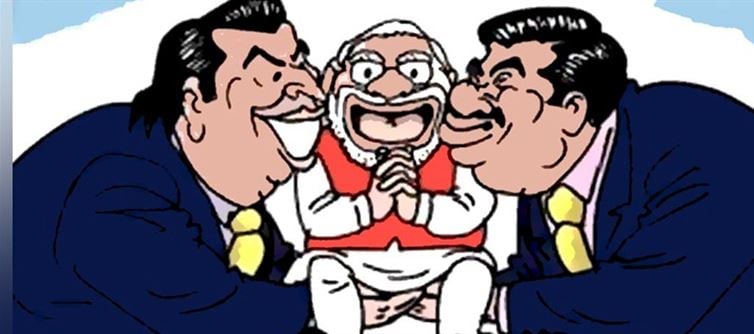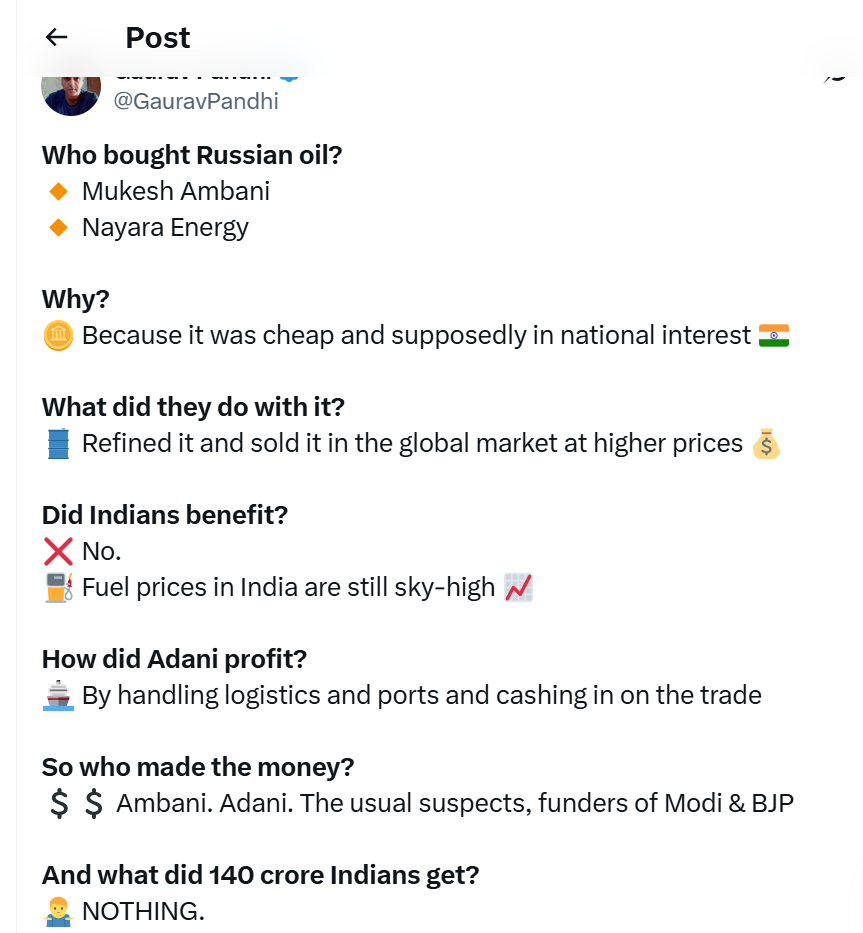
However, much of the oil was not used to reduce domestic fuel costs. Instead, refiners processed the Russian crude in their facilities and exported the refined products — such as diesel and petrol — to global markets where prices were significantly higher, generating substantial profits for the companies involved.
 While reliance and Nayara enjoyed bumper refining margins, the logistics side of the trade also proved lucrative. adani Group, through its extensive port and shipping infrastructure, handled a significant portion of the crude imports and exports, earning from freight, storage, and port fees. In Q1 FY25 alone, adani Ports reported a 6.5% profit rise, partly attributed to increased cargo volumes that included oil shipments.
While reliance and Nayara enjoyed bumper refining margins, the logistics side of the trade also proved lucrative. adani Group, through its extensive port and shipping infrastructure, handled a significant portion of the crude imports and exports, earning from freight, storage, and port fees. In Q1 FY25 alone, adani Ports reported a 6.5% profit rise, partly attributed to increased cargo volumes that included oil shipments.Despite these windfalls, the benefit for ordinary indians was negligible. Domestic petrol and diesel prices remained largely unchanged — averaging around ₹95 per litre for petrol in 2025 — as high excise duties and unchanged retail pricing policies absorbed any potential price relief.
Critics argue that this entire arrangement served corporate and political interests rather than the public. Official data shows that India’s savings from discounted Russian oil in FY23 were around $5 billion, but those gains primarily strengthened forex reserves and refiner profits rather than easing consumer costs. Allegations of political funding connections have further fueled suspicion — for example, a reliance affiliate was among companies that donated to the bjp through electoral bonds, as disclosed in investigative reports. For many citizens, the narrative of “national interest” feels hollow when the tangible outcome is a transfer of wealth to a handful of billionaires, while 140 crore indians continue paying some of the world’s highest fuel taxes.




 click and follow Indiaherald WhatsApp channel
click and follow Indiaherald WhatsApp channel